- Fairground Ride Collapse Injures 14 Schoolchildren During School Trip | News UK
- Barron Trump ‘rescued woman by alerting UK police during Facetime attack’ | News UK
- Fact-Checking Donald Trump’s Davos Speech: Claims Reviewed for Accuracy
- Rachel Reeves Indicates UK Won’t Retaliate with Tariffs on US Over Greenland
- 12-Year-Old Boy in Shark Attack Declared ‘Brain Dead’ and Unresponsive | News UK
- Glasgow Council Approves Huge AI Mural Featuring American Bald Eagles | UK News
- Donald Trump Arrives in Switzerland for Davos Speech: Latest News Update
- Belgian PM Brands Trump ‘A Very Hungry Caterpillar’ at Davos Summit News
VE Day 80th anniversary ‘80 years of hope’ | Paper Talk UK
Bias Exposure
Today marks the VE Day 80th Anniversary and several of the newspapers lead with souvenir editions to mark the occasion.
Westminster Abbey will hold a thanksgiving service to mark the anniversary with the royals and prime minister set to attend. There will be a national two-minute silence just before the service begins at noon.
Thousands will gather for a concert at the Horse Guards Parade to cap four days of marking the end of WW2 – there will be more events across the UK today.
The Daily Star features an image of a silhouette of the state of Winston Churchill in Parliament Square, with the headline “Never forget.”
EXPLAINER
Emotive language – “NEVER FORGET” is a strong, emotionally charged phrase aimed at evoking patriotism and solemn remembrance.
Capitalisation for emphasis – Using all caps for “NEVER FORGET” creates urgency and draws attention, adding emotional weight.
Nostalgia appeal – Refers to a significant historical event (“VE Day 80 years on”) to invoke national pride and collective memory.
Commercial angle – “Souvenir edition” suggests the headline is also a marketing tactic, encouraging purchase based on sentiment.
Glorification framing – Emphasises remembrance and heroism, potentially overlooking more nuanced or critical historical perspectives.
Patriotic tone – Reinforces a national identity narrative through selective memory of victory and unity.
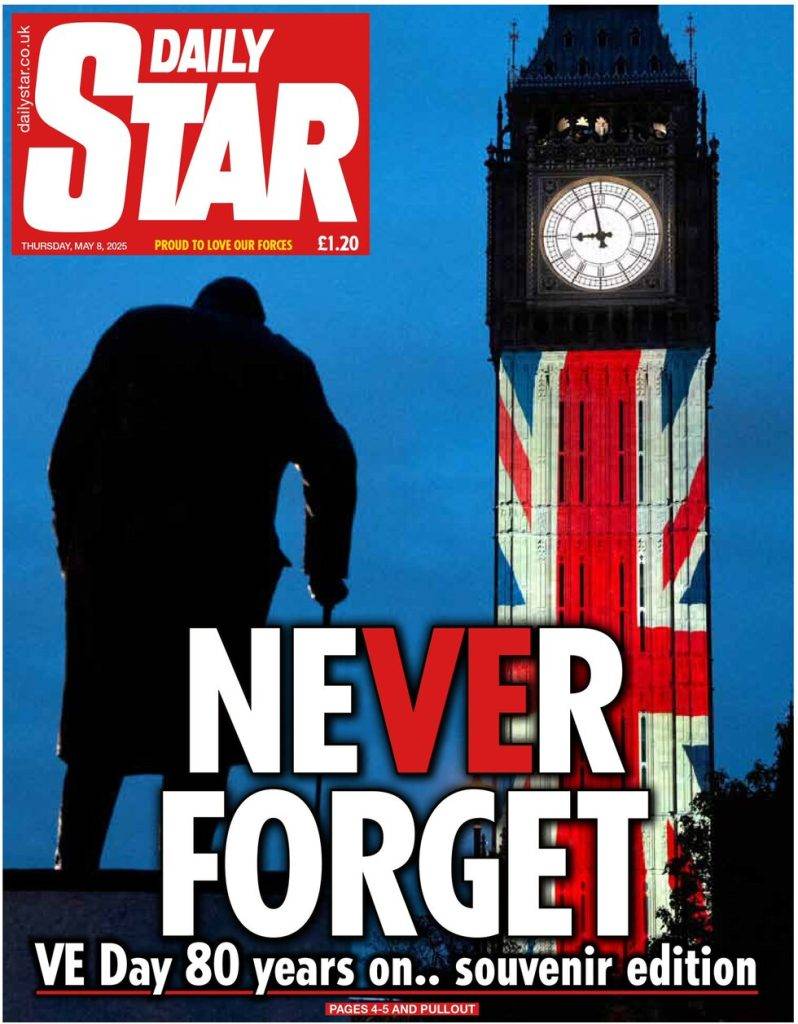
The Daily Express speaks to a woman who is pictured on the front page as a small child standing in rubble and waving Union Jacks as part of the celebrations in 1945. It dedicates many pages to honour the significance of VE Day. “Homes were ruined, people had died but there was a sense of hope in our small community. People knew there were better days ahead.”
EXPLAINER
Patriotic tone – “Britain remembers” reinforces national unity and pride through collective memory.
Nostalgia appeal – “VE Day spirit” evokes a romanticised view of wartime resilience and unity.
Glorification framing – Highlights positive aspects of the past, potentially overlooking complexities or hardships.
Emotive language – “Remembers” suggests solemn reflection, encouraging emotional engagement.
National personification – Refers to “Britain” as a single remembering entity, simplifying diverse individual experiences.
Commemorative framing – Centres the narrative on honouring the past, which can also serve to promote traditional values or national pride.
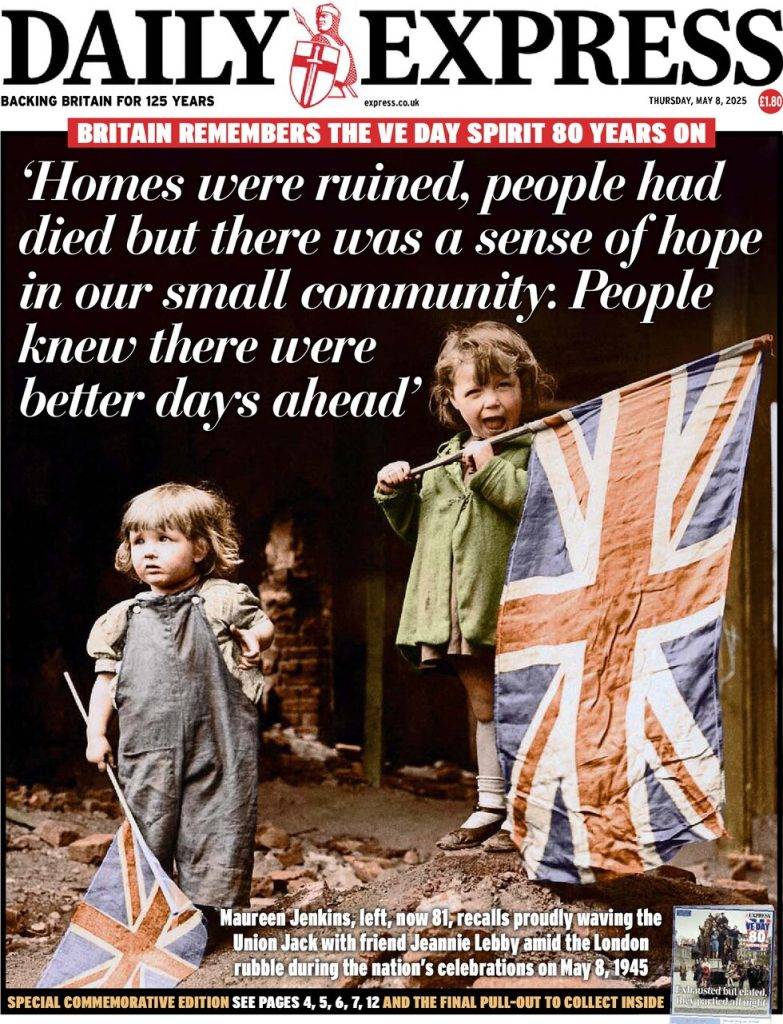
The Daily Mirror reprints a black and white cartoon from this day in 1945, stating “victory and peace in Europe”. The paper reiterates a call from veterans for peace “in wartorn times.”
EXPLAINER
Emotive language – “War-torn times” and “call for peace” evoke sympathy and moral urgency, encouraging reflection.
Nostalgia appeal – Refers to WWII and a historic cartoon, linking past and present emotionally and symbolically.
Commemorative framing – Centres on remembrance and moral lessons from history, reinforcing ideals like peace and unity.
Moral positioning – Veterans are portrayed as voices of reason and conscience, lending moral authority to the message.
Global framing – “World remembers” gives the story international relevance and collective emotional weight.
Contrast device – Juxtaposes past victory with present conflict to underline a message of peace, implying a lesson from history.
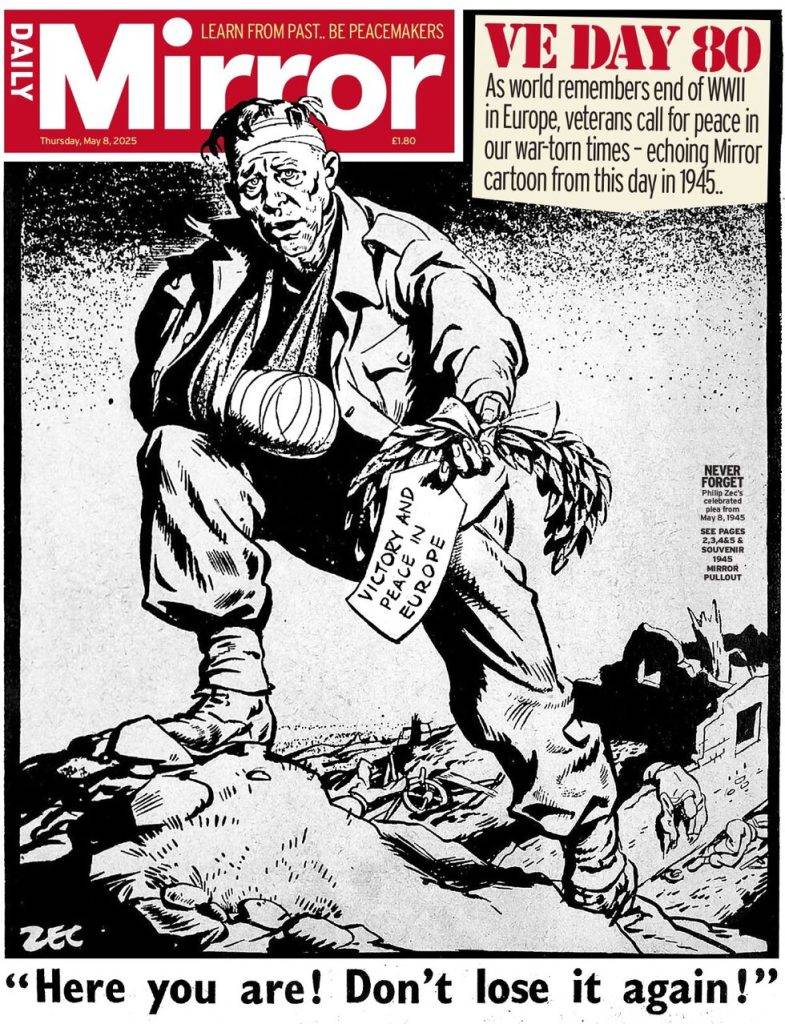
The Daily Record says the memory of all of those who served must be preserved, our stories must be shared when we are gone and, as a country, we must educate the youth to ensure the world never sees a repeat of World War II.
EXPLAINER
Emotive language – “Never Again” is a strong, urgent call that evokes deep emotional response, particularly related to wartime suffering.
Moral imperative – “Must be preserved” creates a sense of duty, emphasising the importance of remembering and honouring the past.
Patriotic tone – The headline reinforces national pride by focusing on those who served, presenting them as heroes deserving of remembrance.
Collective memory – “The memory of all of those who served” highlights a shared national history, encouraging unity and respect for veterans.
Moral framing – The headline suggests that forgetting would be morally wrong, implying a societal obligation to preserve history.
Simplification of history – The call to preserve memory can overlook complex or contested aspects of wartime service, focusing solely on sacrifice and heroism.
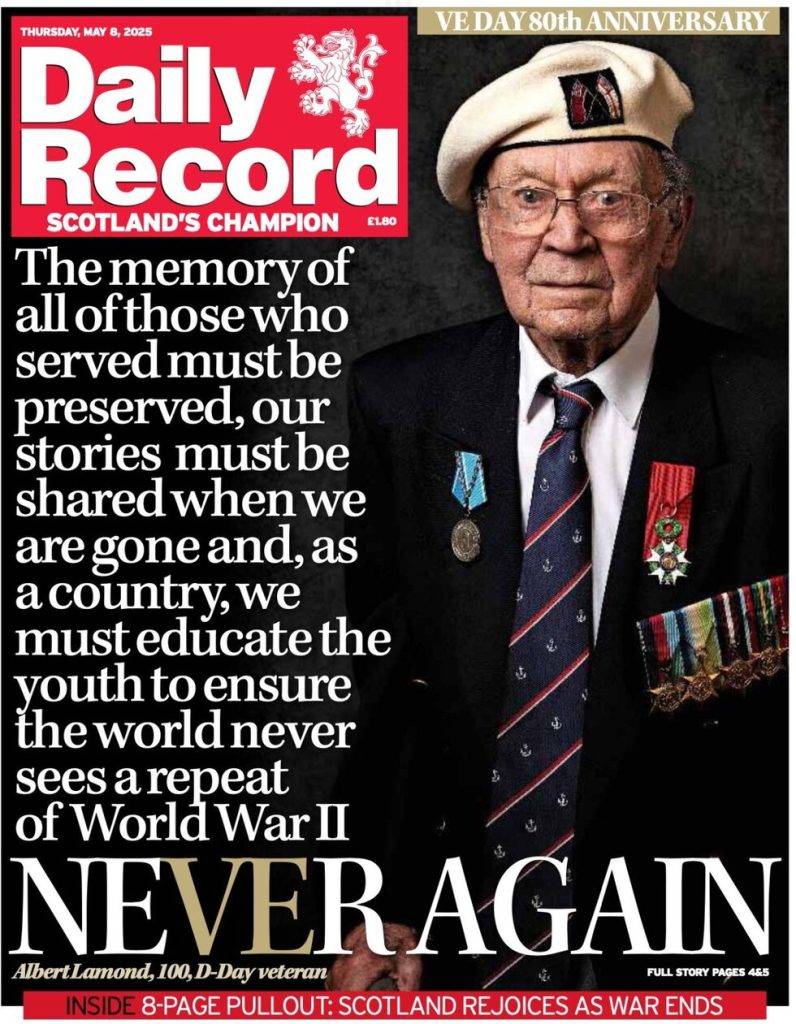
The Scotsman says thank you to those who served whilst looking ahead at the week’s celebrations and commemorations taking place in Scotland. The paper looks back on how it covered the day 80 years earlier: “On May 8, 1945, The Scotsman wrote that, while the Second World War had been ‘decisively won’, this did not necessarily mean that ‘an era of universal peace will automatically be ushered in’”.
EXPLAINER
Emotive language – “Never Forget” is a powerful, emotionally charged phrase, urging remembrance with a sense of urgency and reverence.
National pride – The headline emphasises collective memory, invoking patriotism and unity tied to the significance of VE Day.
Simplification of history – By using a broad statement like “Never Forget”, the headline prioritises a single narrative of victory and heroism, potentially ignoring the complexities of war.
Nostalgia appeal – The reference to VE Day and the “80” years on suggests a deep historical connection, appealing to the emotions of those with ties to the event.
Commemorative framing – The headline focuses on remembrance and honour, underscoring the importance of reflecting on past sacrifices.
Moral undertone – “Never Forget” implies that forgetting would be a moral failure, reinforcing a sense of duty to remember.
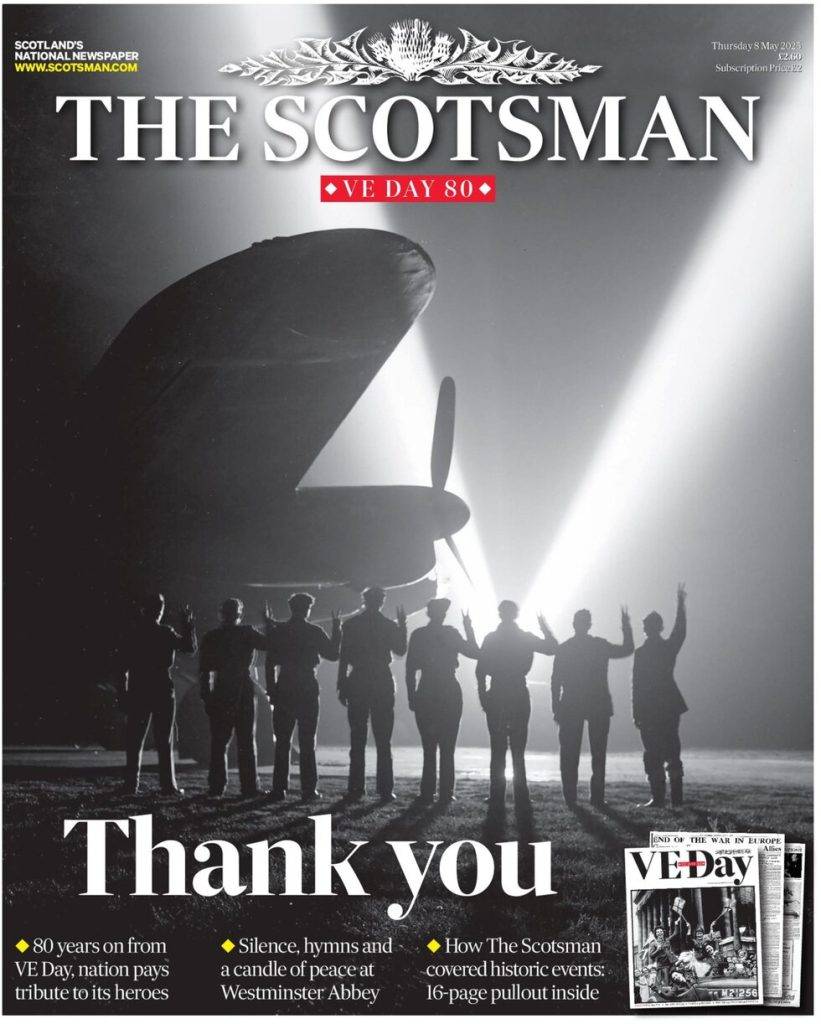
Subscribe to Updates
Get the latest creative news from FooBar about art, design and business.

